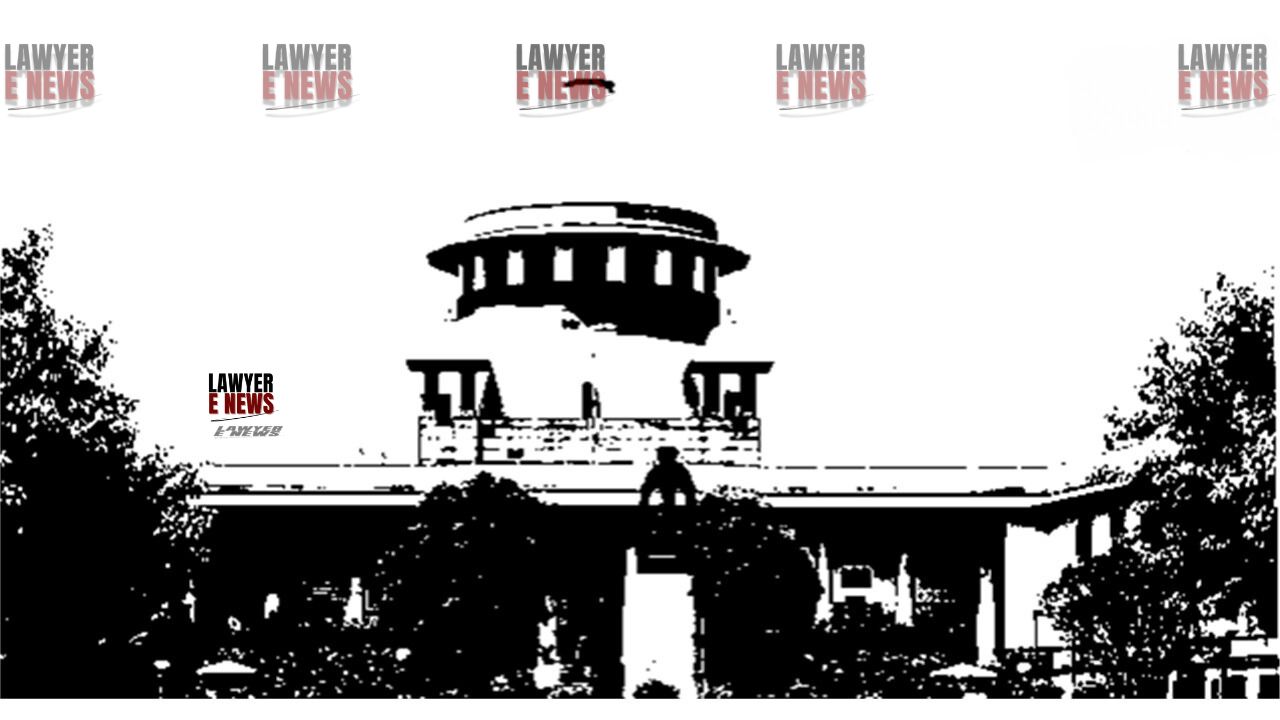-
by sayum
14 February 2026 2:22 PM



Supreme Court of India addressed whether a civil suit seeking declarations, possession, and setting aside prior decrees could be dismissed as barred by limitation under Order VII Rule 11(d) of the Code of Civil Procedure, 1908 (CPC).
In a landmark decision, the Supreme Court held that the suit was ex-facie barred by limitation, with the plaintiff’s cause of action deemed "illusory and fictional." The plaint was rejected at the threshold, emphasizing that limitation issues must be promptly addressed when apparent from pleadings.
"Plea of Fraud Cannot Overcome Limitation; Vague Allegations Are Not Sufficient"
The Court rejected allegations of fraud made by the plaintiff, terming them vague and unsubstantiated. It reiterated that fraud must be explicitly pleaded and proved with clarity, particularly when used to challenge decades-old transactions.
“Fraud is merely pleaded without any specific attributes but based on surmises and conjectures. Clever drafting cannot save a claim that is hopelessly barred by limitation,” the Court observed.
"Registered Sale Deeds Are Constructive Notice to All; Limitation Period Begins From Registration Date"
The Court clarified that the plaintiff and his predecessors were deemed to have constructive notice of the registered sale deeds from 1938 and 1952 under Section 3 of the Transfer of Property Act, 1882. This constructive notice triggered the limitation period for challenging the deeds.
“When a registered instrument is in existence, limitation begins from the date of its registration. Deemed knowledge cannot be avoided under the garb of ignorance,” the Court held.
The case involved disputes over land in Pune, Maharashtra, claimed by the plaintiff, Shrimant Chhatrapati Udayan Raje Pratapsinh Maharaj Bhonsle, as part of his ancestral property. The defendant, Shri Mukund Bhavan Trust, acquired title to the land via registered sale deeds in 1938 and 1952 through court auctions.
The plaintiff filed a suit in 2009, seeking ownership declarations, possession of the land, and the nullification of compromise decrees from earlier cases involving the defendant. The plaintiff alleged that his right to sue accrued in 2007 when he gained knowledge of the transactions.
The defendant moved for rejection of the plaint under Order VII Rule 11(d) CPC, arguing that the claims were barred by Articles 58, 59, and 65 of the Limitation Act, 1963. The trial court and the Bombay High Court dismissed this application, leaving the limitation issue open for trial. The defendant appealed to the Supreme Court.
Is the suit barred by limitation?
The Court analyzed Articles 58, 59, and 65 of the Limitation Act, which prescribe limitation periods for declaratory reliefs, cancellation of instruments, and recovery of possession.
Declaratory Reliefs (Article 58): The right to sue first accrued in 1938 and 1952 upon registration of the sale deeds. The plaintiff’s claim, filed in 2009, was far beyond the three-year limitation period.
Cancellation of Instruments (Article 59): The Court emphasized that a registered document constitutes constructive notice. The three-year limitation period commenced from the date of registration.
Possession Claims (Article 65): The defendants had adverse possession of the land for decades, extinguishing the plaintiff's right to recovery.
“When successive violations of rights do not create fresh causes of action, the right to sue accrues when the first infringement occurs,” the Court clarified.
Allegations of Fraud
The plaintiff claimed that fraud by the defendants invalidated the compromise decrees and transactions. However, the Court found these allegations vague and contrived to evade the limitation bar.
Fraud must relate to the character of a document to render it void; here, fraud was alleged only regarding the contents, making the transactions voidable, not void.
The Court emphasized that even voidable transactions must be challenged within the limitation period.
“The right to sue cannot be revived indefinitely by pleading fraud without substantive evidence,” the Court ruled.
Applicability of Constructive Notice and Doctrine of Laches
The Court held that the plaintiff and his predecessors had constructive notice of the registered deeds from their dates of registration. The plaintiff's long inaction and failure to assert rights for over 70 years constituted laches.
“Law assists the vigilant, not those who sleep over their rights for decades,” the Court remarked.
The Supreme Court allowed the appeal, rejecting the plaint under Order VII Rule 11(d) CPC. It held that the plaintiff's claims were hopelessly barred by limitation and devoid of merit. The orders of the High Court and trial court were set aside.
"The spirit and intention of Order VII Rule 11 CPC is to nip frivolous litigation in the bud. Courts must not hesitate to reject plaints where limitation is glaringly apparent,” the Court stated.
This judgment underscores the importance of adhering to limitation laws and addressing time-barred claims at the threshold. It affirms that vague allegations of fraud and fictional causes of action cannot override statutory time limits. The ruling strengthens the principle of legal certainty and ensures that judicial resources are not wasted on stale claims.
Date of decision : December 20, 2024
